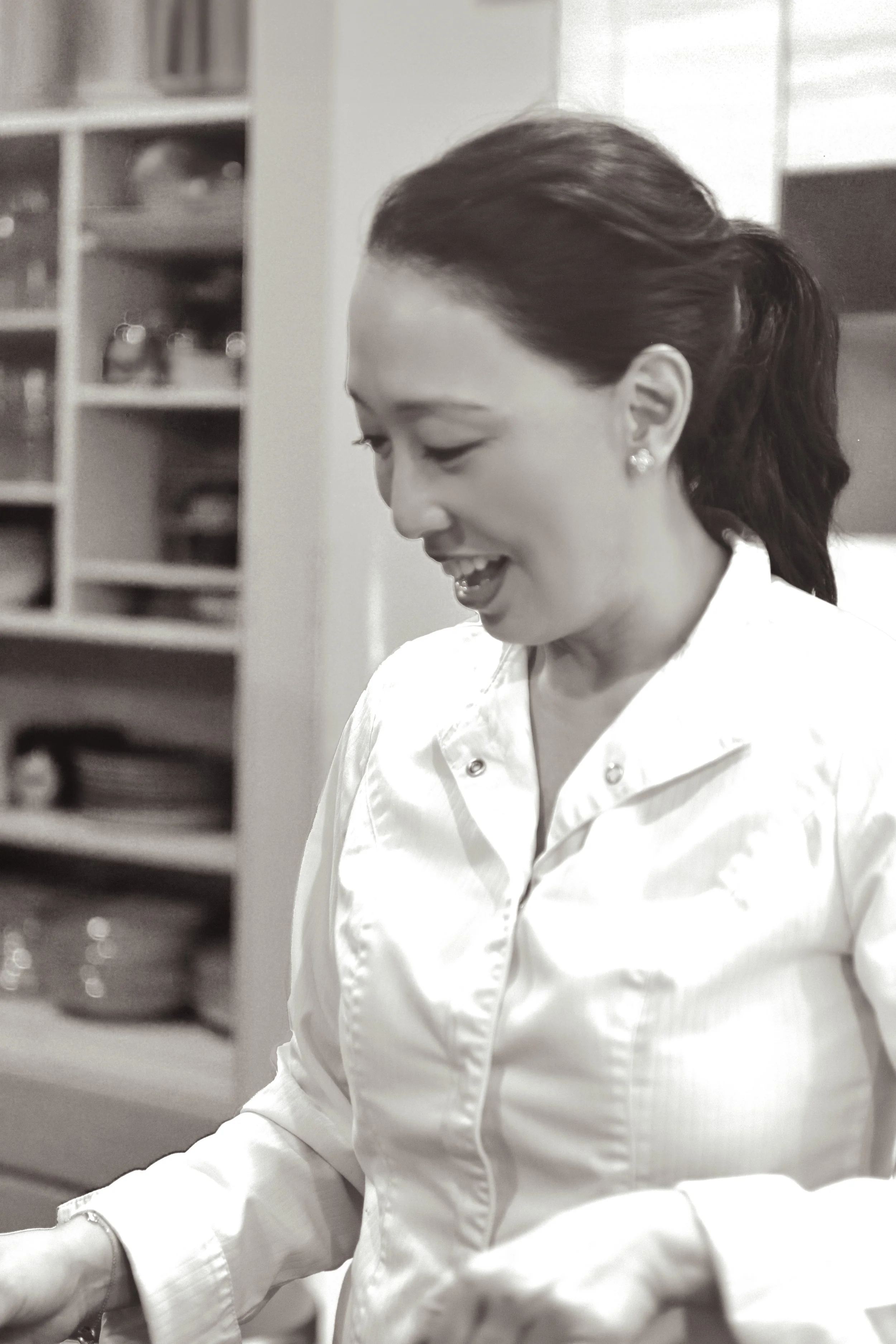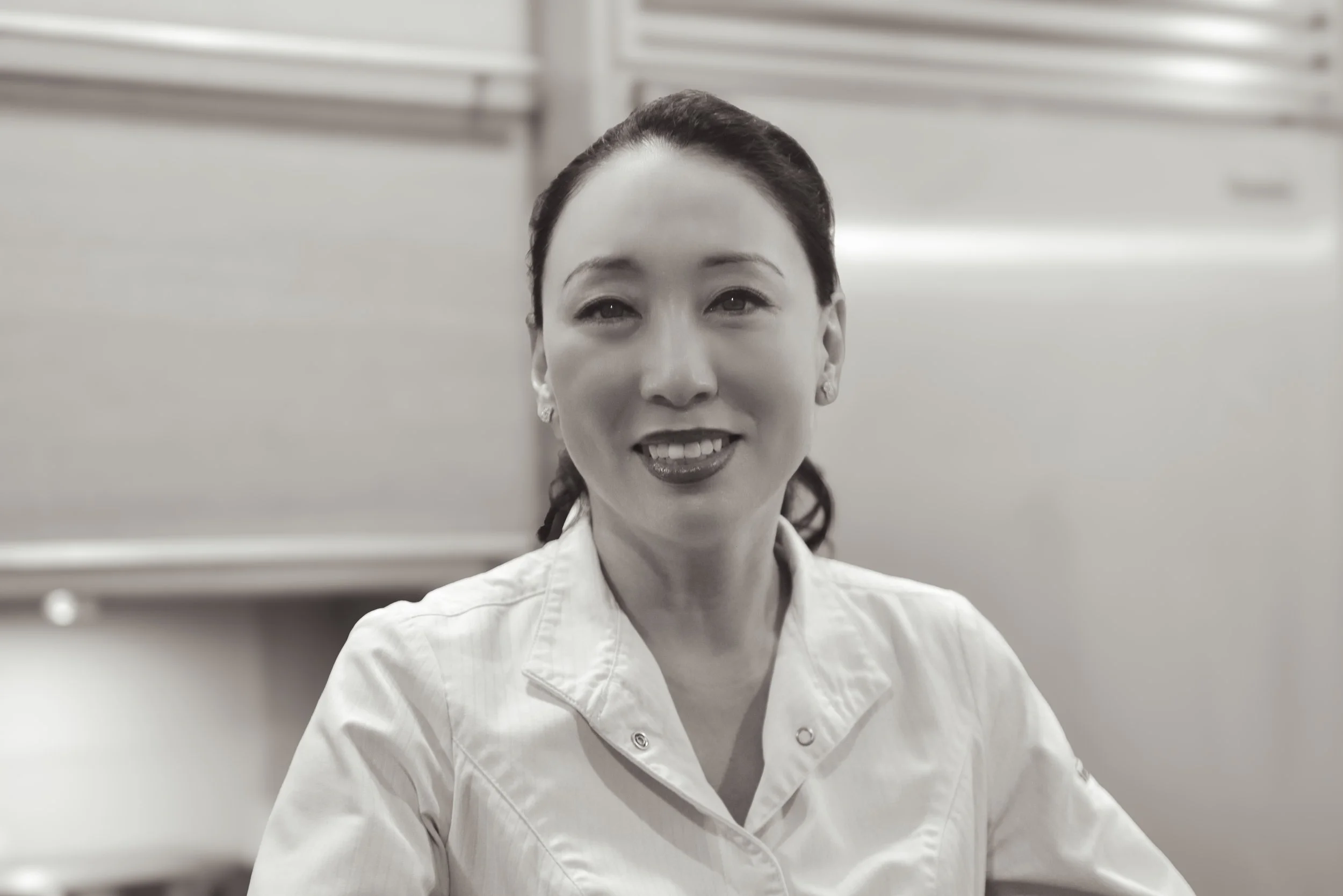the Joy Filled Life of Judy Joo
London, England
“Judy Joo’s story is a study in self-authorship—an ongoing act of courageous reinvention powered by intuition, resilience, and a refusal to settle for a life misaligned with joy.”
I’ve seen Judy Joo on TV. She has the polish of a celebrity, an image seemingly meticulously honed for the perfect camera angles and cookbook covers. But when she invited me into her home, I found myself talking to this unguarded, rebellious woman in the pursuit of clarity and joy, the joy of doing what you love.
Judy is genuine, she is unfiltered and she has an infectious energy. She’s funny and she wastes no time justifying her path or hiding her failures. There’s something magnetic about her honesty—rooted in self-assurance, burnished by setbacks. Yes, she’s a celebrity chef. But that is just a label, it is far from all she is. She’s also an engineer, a former Wall Street analyst, a TV personality, a restaurateur, and above all, a cultural advocate of Korean cuisine to the global stage.
Her story doesn’t start in the kitchen but in the engineering halls of Columbia University. She graduated in the early 2000s and went into finance, working long hours at Goldman Sachs and Morgan Stanley. “Everyone was going into finance,” she said. And for a time, she did too. But the daily grind took its toll, the hours were punishing and she found no passion in the work. Joy was absent, she was tired, restless and so she jumped.
Judy enrolled in the French Culinary Institute, an unpredictable reset that most would hesitate to even imagine, let alone act on. She had no safety net of family legacy in restaurants, “No, I grew up at my grandmother’s elbow ” is her culinary origin story. Her culinary path was unconventional and nonlinear. She began in food media—recipe testing, editorial writing—before plunging into the fire of fine-dining kitchens in London. She worked alongside Michelin-starred chefs in some of the city’s most prestigious restaurants, absorbing the pressure, learning the craft, and the discipline. But she knew working the line was not meant for her. There was something else calling. That was television.
She became the first female Iron Chef on Iron Chef UK, followed by appearances on Iron Chef America and eventually her own Food Network series, Korean Food Made Simple.
The show—and the book by the same name—cemented her as a global voice for Korean cuisine, long before kimchi or gochujang were grocery store staples.
Entrepreneurship shortly followed. She launched her first restaurant brand, Jinjuu, with locations in London and Hong Kong. Later, she founded Seoul Bird with longtime collaborator Andrew Hales—a love letter to Korean fried chicken that soon grew into an international brand. She navigated the upheavals of COVID, economic uncertainty, and the highly competitive restaurant scene in the UK. Her story could be told as a series of wins—but she doesn’t see it that way.
“I have more stories of failure than I do success,”
Judy told me. She isn’t afraid of failure, in fact she expects it, and she studies it. She uses it as a pivotal moment to reassess and change direction. This mindset—the courage to leap, the humility to stumble, the clarity to pivot—is what defines her. She credits her determination and success to her supporters, people who opened doors, producers who took a chance on her, and mentors who saw something in her and her friends who stood by her through the ups and downs. “Nobody’s an island,” she said.
Judy is not shy about the challenges—especially the ones shaped by gender. As a woman who has entered kitchens and boardrooms she knows what it feels like to be underestimated, to be treated as an outsider.
Her definition of success has changed over time. Now, it’s quieter, more grounded. “I just want to be comfortable. I want to be around people I like. I don’t need to impress anyone anymore.” Her joy now comes from peace, not performance; from afternoon, not red carpets. When I asked about legacy, she paused—with contemplation. “I don’t think about it much,” she admitted. But when pressed, she offered this:
“I hope people see me as someone who helped put Korean food on the global map.”
Judy Joo is someone who listens closely to what brings her joy, and follows it, again and again, with unflinching commitment.
Success is about becoming not arriving.
It’s about choosing to do what you love with the people that matter the most.







